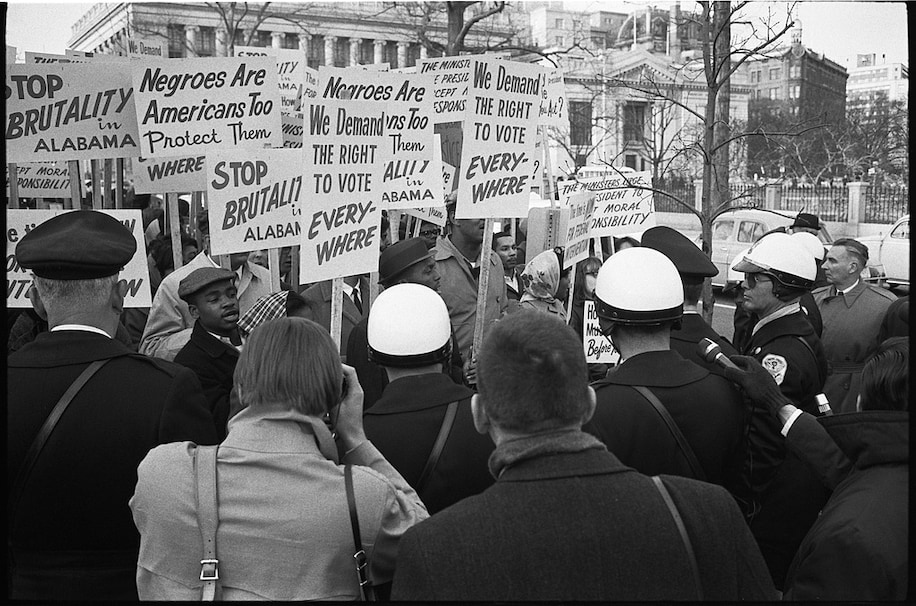
“[B]ecause of questions about its status amidst the messy and irregular politics of Reconstruction,” on 30 March 1870 Secretary of State Hamilton Fish proclaimed the 15th Amendment an official part of the U.S. Constitution; it had been ratified almost two months prior, on 03 February 1870.
The 15th Amendment declared that the right of U.S. citizens to vote could “not be abridged or denied” by any state due to “race, color, or previous condition of servitude.” Congress passed the amendment on 26 February 1869.
One day after its adoption, New Jersey resident Thomas Peterson-Mundy became the first African American to vote under the authority of the 15th Amendment.
The Civil War had ended about five years earlier.
On 09 April 1865, Robert E. Lee had surrendered the last major Confederate army to Ulysses S. Grant at Appomattox Courthouse. The last battle took place at Palmito Ranch, Texas, on 13 May 1865.
The 1860 Census reported a U.S. population of 31,443,321:
- Slaves in Lower South : 2,312,352 (47% of total population);
- Slaves in Upper South: 1,208758 (29%); and
- Slaves in Border States: 432,586 (13%).
Nearly 4 million Black people had been free by the 13th Amendment (passed by Congress on 31 January 1865 and ratified on 06 December 1865). They had their citizenship guaranteed by the 14th Amendment (passed by Congress on 13 June 1866 and ratified 09 July 1868).

You would think that, having been granted full rights of citizenship under the 14th Amendment, Black men (remember, women could not yet vote) would be able to vote.
However, Congress needed to act in 1869 to explicitly give Black males the right to vote. A Constitutional amendment had not been sufficient to overturn White Supremacy. When Reconstruction ended in 1877, Southern states soon passed new laws to restrict the voting rights of Black Americans.
African Americans exercised the right to vote and held office in many Southern states through the 1880s, but in the early 1890s, steps were taken to ensure subsequent “white supremacy.” Literacy tests for the vote, “grandfather clauses” excluding from the franchise all whose ancestors had not voted in the 1860s, and other devices to disenfranchise African Americans were written into the laws of former Confederate states.
Congress finally acted on the challenge of White Supremacy during the Presidency of Lyndon Baines Johnson. The Voting Rights Act of 1965 (VRA) “abolished all remaining deterrents to exercising the right to vote and authorized federal supervision of voter registration where necessary.”
Authorized by the 15th Amendment, the VRA is one of the most consequential laws ever enacted. It dismantled Jim Crow practices that severely restricted African-American access to the ballot, such as poll taxes and literacy tests. For some 50 years, it helped ensure that democracy reflected the country’s diversity.
But White Supremacists never give up.
On 29 June 1982 President Ronald Reagan signed a 25-year extension of the VRA. According to St. Louis Magazine, even then politicians had “fought to rewrite it to put the burden on the voter to prove discrimination.”
Then came Shelby County v. Holder.
Known for gnawing at complex questions like a terrier with a bone. Digital evangelist, writer, teacher. Transplanted Southerner; teach newbies to ride motorcycles. @kegill (Twitter and Mastodon.social); wiredpen.com
















